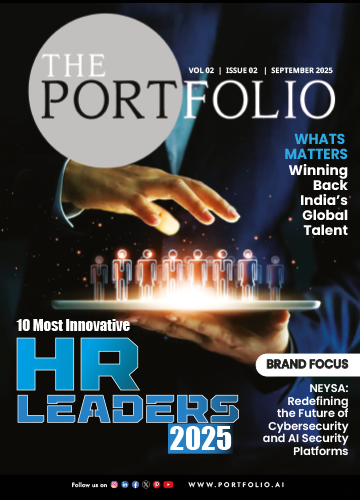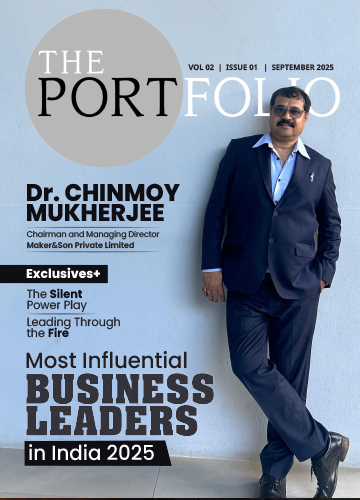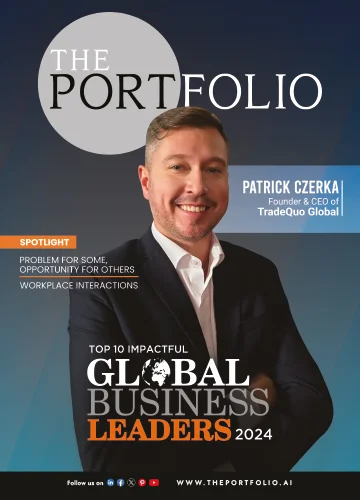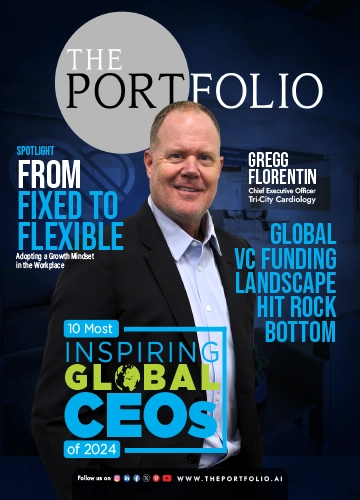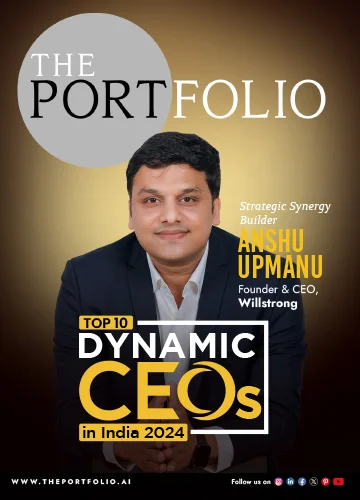
Dr. Chinmoy Mukherjee Most Influential Business Leaders in India 2025
Dr. Mukherjee is a seasoned leader with 30+ years in infrastructure and corporate leadership. From pioneering roles in landmark projects like the Burj Khalifa to steering HR, legal, and corporate affairs, his journey reflects resilience and adaptability. Renowned for navigating crises and driving transformation, he continues to inspire as a trusted strategist and visionary.
Designation: Chairman and Managing Director
Company: Maker&Son Private Limited
Industry: Furniture and Interior Designing
Country: India
Dr. Chinmoy Mukherjee Most Influential Business Leaders in India 2025
From that empty site began a career that would take him through some of India’s biggest companies, landmark infrastructure projects like Burj Khalifa, and global collaborations. He became a man who handled tunnelling for metros, piling for skyscrapers, negotiations with unions, and even the human side of corporate crises. His journey is about people, presence of mind, and the courage to take responsibility in moments of crisis. Over time, he expanded his expertise into HR, corporate affairs, and even legal matters, earning the trust of leaders who believed he was the right man for the right role, every time. Over three decades later, his journey remains a testament to resilience, adaptability, and vision. In an insightful conversation with The Portfolio, he spoke about building structures, people, organisations, and now renewable futures.
“Focus is the single biggest differentiator between wishful thinking and real achievement.”
You started your career in 1989. How has your journey been, and what were the biggest turning points?
I began as a junior engineer in a public sector undertaking. My first assignment was piling work on barren land, far from civilisation. It was daunting, no shelter, no familiar faces, just raw ground that had to be transformed. But those early struggles gave me resilience. Over time, I worked across five companies, including ISAR, Tata Projects, and Larsen & Toubro, moving from technical roles to HR, corporate affairs, and even legal aspects. At some point, I realised I wanted to build something of my own. That’s when I took over the India operations of UK-based Maker&Son. I ventured into areas such as solar projects and rock protection systems, which were essential but often overlooked.
“Success for me has never been about comfort zones; it’s about stepping into the unknown and conquering it.”
What lessons did you take from your experiences in major companies?
Working in organisations like Tata Projects, ISAR, and L&T exposed me to multiple dimensions of leadership. I was often placed in challenging roles, including technical, legal, and people management, and trusted to deliver. That trust shaped me. I vividly remember my time with the Bangalore Metro. Overseeing a 15-kilometre tunnel taught me the science and art of pushing segments through giant tunnelboring machines. Later, I contributed to projects such as the Dhaka Metro and Noida Metro, and even worked on piling for the Burj Khalifa. The greatest lesson I carried forward was adaptability. Whether it was arbitration, union negotiations, or handling crises, I had to be an allrounder.
Can you share a moment that tested your leadership during a crisis?
One incident stays with me. While working on a project for Hindustan Petroleum in Visakhapatnam, a tragic accident occurred. A worker lost his life when a pipe collapsed. Such moments are devastating, both humanly and organisationally. I realised that if the news broke immediately, it would trigger a strike and bring huge financial losses. Using my presence of mind, I managed to convince the hospital and union leaders to delay the announcement for a few hours. It allowed us to calm emotions, prepare support for the family, and ensure statutory compliance. It was not about hiding the truth; it was about handling it responsibly, with humanity.
“Leadership is not about avoiding mistakes, it’s about having the courage and presence of mind to rectify them.”
You’ve also held HR and administrative responsibilities. What’s your philosophy for people management?
For me, the answer is delegation. Suppose a leader tries to do everything, whether as the umpire, bowler, batsman, or fielder, the organisation won’t grow. Employees thrive when they’re trusted with authority. I always set clear limits of responsibility. For example, I approve financial matters up to a certain level and let my teams own their work. It builds satisfaction, ownership, and a sense of pride. When people feel like “owners” rather than “employees,” the company benefits as a whole.
At Maker&Son, what project excites you most right now?
One of the projects that excites me the most at Maker&Son is a 23 MW solar project in Madhya Pradesh, developed on a PPA model. The government will purchase power from us for a period of 25 years. Beyond a business opportunity, this project is a significant step towards clean energy and long-term sustainability. Our commitment to such projects gives hope for a future where India fully adopts solar energy. Solar has the power to transform our society, both economically and environmentally. For me, being part of that transition is deeply fulfilling.
Do you think India is ready to adopt solar energy fully?
I believe so, thanks to the vision of our Prime Minister. His schemes, such as Kusum, have provided strong subsidies and incentives to entrepreneurs. Coal is becoming increasingly expensive and unsustainable, whereas hydropower relies heavily on the availability of water. Within the next decade, I see solarisation becoming the backbone of India’s energy supply. Even railways are encouraging solar procurement. Pollution and scarcity will force this change, and it’s the right direction for our future.
“Solar is far more than technology; it’s the hope for a cleaner, more self-reliant India.”
How do you see philanthropy—as charity or responsibility?
For me, philanthropy is not charity. It’s about responsibility and humanity. During my time at ISAR, for instance, CSR funds were used to relocate slum dwellers near Paradeep. They were given proper homes, roads, and water facilities. That was creating dignity and sustainability for people, beyond just charity. At Maker&Son, too, we ensure that CSR is not a tick-box exercise, but a commitment to uplifting communities. Ultimately, it’s about humanity.
After 35 years in the industry, how do you now define success?
Success is not about luxury cars or large bank balances. For me, success is when society recognises you for your contributions. If tomorrow I have solar plants across states, powering lives and reducing pollution, I call that success. Money sustains livelihood, but legacy comes from what you give back.
How are you personally giving back to society?
At this stage, my duty is to repay the debt I owe to society. My wife and I are planning to establish a school for children from below-povertyline families, rickshaw pullers, slum dwellers, and daily-wage workers. It will provide free education, meals, and dignity. We already have land for it. Our aim is not to rely on government aid but to create something self-sufficient. This is our way of giving back.
If you were to retire today, how would you spend the next decade?
My wife and I love to travel. We’ve seen many parts of the world, but pilgrimages like Amarnath and Kedarnath are still on our list. Travelling is, in my opinion, one of the best forms of education. Meeting people, understanding different cultures, and seeing the world broaden your perspective far more than books can. If I retired today, I would devote time to both travel and spiritual pursuits.
Finally, what advice would you give to the next generation of leaders?
My advice can be summed up in one word: focus. Without focus, you lose time and opportunities. Today’s generation has access to all the tools and knowledge at their fingertips through technology. But distraction is also everywhere. Plan your work, do your homework before meetings, and concentrate fully. If you focus now, you will enjoy your leisure later.


